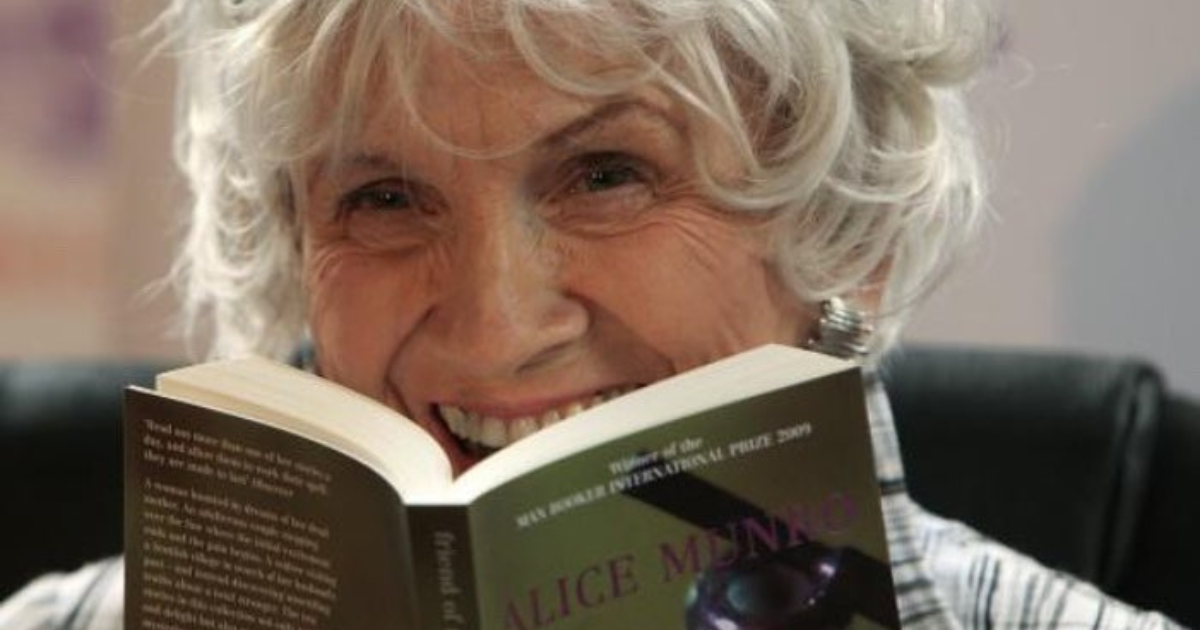Words that make up a person
Alice Munro, or the life and work of Canada’s Chekhov

I’ve always believed that writing concisely and masterfully is both a talent and the result of relentless effort. To express an idea at length certainly takes work, but to preserve its full depth and precision within just a few sentences is almost an art form. My personal ideal of such prose has always been Anton Pavlovich Chekhov. And then, quite unexpectedly, I stumbled upon an in-depth study of the Canadian writer Alice Ann Munro, who has often been called “Canada’s Chekhov.” How exactly was she able to convey that particular atmosphere of an ordinary person’s life?
Alice Ann Munro was born in the small town of Wingham in Ontario, Canada. This place, with its quiet streets and slow rhythm, would later become the main stage for her literary stories. It seemed as though Alice’s own fate had been written in the very settings of her future narratives. She enrolled in the English literature program at the University of Western Ontario and later became immersed in family life, writing only in short bursts while her children slept.
Munro’s writing journey began in 1950 with the story “The Dimensions of a Shadow”, but real success came with the publication of her first collection, “Dance of the Happy Shades,” in 1968, which won Canada’s prestigious Governor General’s Award. Her stories contain no dramatic events or shocking plot twists, yet each one seems to be fully lived by the reader, from start to finish, in the deep recognition of oneself within her characters.
Munro’s writing masterfully weaves the fine threads of past and present, of silent despair and hope. Her protagonists, most often women, search for their place in life, face moral dilemmas, and quiet dramas within seemingly ordinary lives. The author herself admitted she was less interested in the events themselves than in the emotional response they provoked in a person’s soul.
In her collection “Who Do You Think You Are?”, Alice explores themes of growing up, rebellion, and the search for identity through the character of Rose. This is where the Chekhovian influence first becomes clear: the heroine journeys from a provincial girl to a woman who comes to understand herself and her place in the world. The story “Half a Grapefruit” becomes key to understanding Rose’s inner world. The fruit – symbolizing a different life, unlike the dull reality she’s used to – becomes her internal protest and secret dream.
The comparison to Chekhov is no accident: Munro truly possessed the rare gift of revealing her characters’ psychology and inner world through the smallest of details. She did not describe them directly but allowed the reader to feel and understand them through subtle nuances. It was precisely this ability to elevate unnoticed moments into something meaningful and precious, just as Chekhov did, that made her stories resonate deeply with readers around the world.
The pinnacle of recognition for Alice Munro came with the Nobel Prize in Literature, which she received in 2013. She became the thirteenth woman ever awarded this prestigious honor. In an interview, the writer shared that she learned of her win from her daughter late at night and was genuinely surprised, noting she had never seriously considered the possibility of such success. In that humble astonishment lies the essence of who she was - sincere and unpretentious, leaving an indelible mark on the reader’s soul.
One of the most poignant pieces in her body of work is the story “The Bear Came Over the Mountain”. In it, an elderly couple is faced with the challenges of memory and enduring love, revealing how deep emotions and shared history become inseparable, intertwining into the delicate, nearly transparent fabric of life.
Munro openly admitted she had always written personal stories – stories of ordinary people who were, at the same time, astonishingly profound. “I want my stories to move people,” she once said in her address to the Nobel Committee, “in such a way that they feel they’re a different person when they finish.”
Munro passed away at the age of 92, but her legacy lives on and breathes. Her stories continue to stir emotions, inspire reflection, and remind us that a person is not just actions and words, but also the fleeting moments they live, the feelings they experience, and the quiet details from which life itself is composed.
For me, Alice Munro became a guide into a world where every small story is meaningful and precious, and every person is a universe, filled with depth and meaning.


